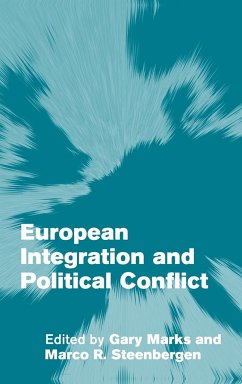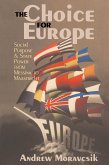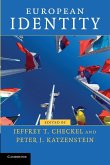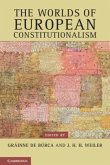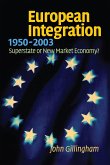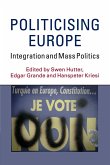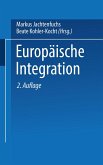Over the past half-century, Europe has experienced the most radical reallocation of authority that has ever taken place in peace-time, yet the ideological conflicts that will emerge from this are only now becoming apparent. The editors of this volume, Gary Marks and Marco Steenbergen, have brought together a formidable group of scholars of European and comparative politics to investigate patterns of conflict that are arising in the European Union. Using diverse sources of data, and examining a range of actors, including citizens, political parties, members of the European Parliament, social movements, and interest groups, the authors of this volume conclude that political contestation concerning European integration is indeed rooted in the basic conflicts that have shaped political life in Western Europe for many years. This comprehensive volume provides the most up-to-date analysis of political conflict in the European Union.
Table of contents:
Introduction: models of political conflict in the European Union Marco R. Steenbergen and Gary Marks; Part I. Citizens: 1. The structure of citizen attitudes and the European political space Christopher J. Anderson and Matthew J. Gabel; 2. Potential for contestation on national matters at national elections in Europe Cees Van Der Eijk and Mark N. Franklin; 3. Don't rock the boat: expectations, fears and opposition to EU level policymaking Leonard Ray; 4. Varieties of capitalism and political divides over European Integration Adam P. Brinegar, Seth K. Jolly and Herbert Kitschelt; Part II. Political Parties: 5. Defining the EU political space: an empirical study of the European elections manifestos, 1979-1999 Matthew J. Gabel and Simon Hix; 6. Does Left/Right structure party positions on European integration? Liesbet Hooghe, Gary Marks and Carole J. Wilson; 7. Political competition in the European Parliament: evidence from roll call and survey analyses Jacques J. A. Thomassen, Abdul G. Noury and Erik Voeten; 8. Contesting Europe? The salience of European integration as a party issue Marco R. Steenbergen and David Scott; Part III. Groups: 9. Contestation potential of interest groups in the EU: emergence, structure and political alliances Bernhard Wessels; 10. Contestation in the streets: European protest and the emerging Euro-polity Doug Imig; 11. Conclusion: European integration and political conflict Gary Marks.
Over the past half-century, Europe has experienced the most radical reallocation of authority that has ever taken place in peace-time. This volume brings together a formidable group of scholars of European and comparative politics to investigate the new patterns of political conflict that are arising in the European Union.
A formidable group of scholars investigate patterns of conflict that are arising in the European Union.
Table of contents:
Introduction: models of political conflict in the European Union Marco R. Steenbergen and Gary Marks; Part I. Citizens: 1. The structure of citizen attitudes and the European political space Christopher J. Anderson and Matthew J. Gabel; 2. Potential for contestation on national matters at national elections in Europe Cees Van Der Eijk and Mark N. Franklin; 3. Don't rock the boat: expectations, fears and opposition to EU level policymaking Leonard Ray; 4. Varieties of capitalism and political divides over European Integration Adam P. Brinegar, Seth K. Jolly and Herbert Kitschelt; Part II. Political Parties: 5. Defining the EU political space: an empirical study of the European elections manifestos, 1979-1999 Matthew J. Gabel and Simon Hix; 6. Does Left/Right structure party positions on European integration? Liesbet Hooghe, Gary Marks and Carole J. Wilson; 7. Political competition in the European Parliament: evidence from roll call and survey analyses Jacques J. A. Thomassen, Abdul G. Noury and Erik Voeten; 8. Contesting Europe? The salience of European integration as a party issue Marco R. Steenbergen and David Scott; Part III. Groups: 9. Contestation potential of interest groups in the EU: emergence, structure and political alliances Bernhard Wessels; 10. Contestation in the streets: European protest and the emerging Euro-polity Doug Imig; 11. Conclusion: European integration and political conflict Gary Marks.
Over the past half-century, Europe has experienced the most radical reallocation of authority that has ever taken place in peace-time. This volume brings together a formidable group of scholars of European and comparative politics to investigate the new patterns of political conflict that are arising in the European Union.
A formidable group of scholars investigate patterns of conflict that are arising in the European Union.
'... unlike many collections of this type, they do not read like a set of conference proceedings. The contributions come together successfully in order to form a coherent whole ... formidable theoretical and empirical combination ... this collection will be very useful to both students and researchers. Not only does it provide valuable insights into the relationship between European integration and political conflict, it also sets an agenda for future work in this area ... the text poses problems as often as it answers questions.' Journal of European Affairs

